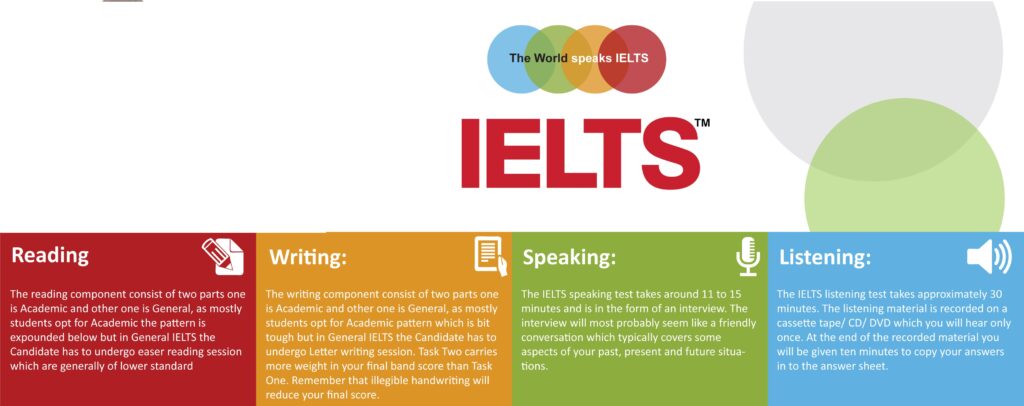IELTS Preparation: Key Techniques to Boost Your Speaking and Writing Skills

Introduction to IELTS
IELTS preparation is crucial for achieving a high score in the speaking and writing sections of the test. Effective preparation involves understanding the exam format, practicing regularly, and utilizing key techniques that can significantly boost your performance.
Familiarizing yourself with the structure of the IELTS exam is the first step in your IELTS preparation. The speaking section consists of a face-to-face interview with an examiner, while the writing section includes two tasks that evaluate your ability to articulate ideas clearly and coherently.
What is IELTS?
The International English Language Testing System (IELTS) is a standardized test that measures English language proficiency. It’s essential for anyone aiming to study, work, or migrate to an English-speaking country. This test evaluates your abilities in listening, reading, writing, and speaking.
Importance of IELTS
Achieving a good score on the IELTS can open doors to educational and professional opportunities globally. Many universities, employers, and immigration authorities require IELTS scores as proof of English proficiency.
Types of IELTS Tests
There are two types of IELTS tests: Academic and General Training. The Academic test is for those applying for higher education or professional registration, while the General Training test is for those migrating to an English-speaking country or seeking work experience.
Understanding the IELTS Format
Listening Section
The Listening section consists of four recordings of native English speakers, and you have to answer a series of questions based on what you hear. This section tests your understanding of the main ideas, specific information, and the speaker’s opinions or attitudes.
Reading Section
The Reading section involves reading passages and answering questions. The Academic test includes texts from books, journals, and newspapers, while the General Training test includes extracts from books, magazines, and advertisements.
Writing Section
The Writing section has two tasks. Task 1 for Academics involves describing visual information like graphs or charts, and for General Training, it involves writing a letter. Task 2 is an essay for both test types, where you need to present an argument or discuss a problem.
Speaking Section
The Speaking section is a face-to-face interview with an examiner. It consists of three parts: an introduction and interview, a long turn where you speak on a topic, and a discussion.
IELTS Listening Preparation
Overview of the Listening Test
The Listening test is 30 minutes long, with 40 questions to answer. It includes a variety of accents to reflect real-life situations.
Tips for Improving Listening Skills
- Practice Regularly: Listen to English audio materials daily, such as podcasts, news, and movies.
- Note-Taking: Develop effective note-taking skills to jot down key points.
- Mock Tests: Take practice tests to get familiar with the test format and timing.
IELTS Reading Preparation
Overview of the Reading Test
The Reading test is 60 minutes long, with 40 questions. It assesses skills such as reading for gist, reading for main ideas, reading for detail, and understanding inferences.
Tips for Enhancing Reading Skills
- Skimming and Scanning: Learn to skim for the main ideas and scan for specific information.
- Time Management: Practice reading under timed conditions to improve speed and accuracy.
- Varied Reading: Read a variety of materials, including academic articles and everyday texts.
IELTS Writing Preparation
Overview of the Writing Test
The Writing test is 60 minutes long, with two tasks. Task 1 involves writing a report or letter, and Task 2 involves writing an essay.
Task 1: Academic and General Training
- Academic Task 1: Describe visual information like graphs, charts, or tables.
- General Training Task 1: Write a letter based on a given situation.
Task 2: Essay Writing
In Task 2, you’ll write an essay in response to a point of view, argument, or problem. This task assesses your ability to present ideas, justify opinions, and organize your thoughts coherently.
Tips for Effective Writing
- Practice Different Types of Essays: Familiarize yourself with various essay types such as opinion, discussion, and problem-solving essays.
- Structure Your Essays: Use a clear structure with an introduction, body paragraphs, and a conclusion.
- Use Cohesive Devices: Employ linking words and phrases to ensure your essay flows logically.
IELTS Speaking Preparation
Overview of the Speaking Test
The Speaking test lasts 11-14 minutes and is divided into three parts. It assesses your spoken English skills in a structured format.
Tips for Improving Speaking Skills
- Practice Speaking Daily: Engage in conversations in English as much as possible.
- Record Yourself: Record and listen to your speech to identify areas for improvement.
- Mock Interviews: Participate in mock interviews to simulate the test environment.
Time Management Strategies for IELTS
Importance of Time Management
Effective time management is crucial to complete each section of the test within the allocated time.
Time Management Tips for Each Section
- Listening: Allocate time to read questions before the recording starts.
- Reading: Spend no more than 20 minutes per passage.
- Writing: Allocate 20 minutes for Task 1 and 40 minutes for Task 2.
- Speaking: Practice concise yet thorough answers.
Building Vocabulary for IELTS
Importance of a Strong Vocabulary
A robust vocabulary enhances your ability to express ideas clearly and accurately in both writing and speaking sections.
Strategies for Vocabulary Building
- Daily Vocabulary Lists: Learn and use new words daily.
- Reading: Read extensively to encounter new words in context.
- Flashcards: Use flashcards to memorize and review vocabulary.
Grammar Essentials for IELTS
Common Grammar Mistakes to Avoid
- Subject-Verb Agreement: Ensure verbs agree with their subjects in number and person.
- Tense Consistency: Maintain consistent verb tenses throughout your writing and speaking.
- Pronoun Reference: Ensure pronouns refer to specific nouns.
Grammar Resources and Exercises
- Grammarly
- Cambridge English Grammar in Use
- Online Grammar Quizzes
Practice Tests and Mock Exams
Importance of Practice Tests
Practice tests help you become familiar with the test format and identify areas needing improvement.
Where to Find Practice Tests
- Official IELTS Website
- British Council
- IDP IELTS
How to Analyze Your Performance
After completing practice tests, review your answers to understand mistakes and areas for improvement. Focus on recurrent errors and work on them specifically.
Developing a Study Plan
Creating a Realistic Study Schedule
Divide your study time evenly across all sections of the test. Allocate more time to areas where you feel less confident.
Balancing Study Time Across Sections
Ensure you cover all sections regularly. For example, you might focus on listening and reading one day, and writing and speaking the next.
Test Day Preparation
What to Bring on Test Day
- ID Document
- Pen and Pencil
- Water Bottle
- Test Confirmation Details
Test Day Tips and Tricks
- Arrive Early: Give yourself plenty of time to settle in.
- Stay Calm: Practice relaxation techniques to manage anxiety.
- Follow Instructions: Listen carefully to the test invigilator’s instructions.
Conclusion
Preparing for the IELTS can seem daunting, but with the right strategies and resources, you can achieve your desired score. Remember to practice regularly, focus on your weak areas, and stay calm and confident on test day. Good luck!

 How to Find the Best Tutor in Los Angeles?
How to Find the Best Tutor in Los Angeles?  How You Get into the Canada’s Largest Engineering School
How You Get into the Canada’s Largest Engineering School  Explore the Top 10 Reasons Why to Study in the abroad!
Explore the Top 10 Reasons Why to Study in the abroad!  The Best Time to Book a Short Stay Apartment in Dubai
The Best Time to Book a Short Stay Apartment in Dubai  Maximize Your Potential With A CDL Truck Driving School
Maximize Your Potential With A CDL Truck Driving School  How students can book accommodation in York House Nottingham?
How students can book accommodation in York House Nottingham?  Exploring London’s Best Butcher Shops
Exploring London’s Best Butcher Shops  Enhance Your Shop Appeal with Sydney’s Best Carpentry Services
Enhance Your Shop Appeal with Sydney’s Best Carpentry Services  A Detailed Look at the Features of the LEGO Technic Mars Crew Exploration Rover
A Detailed Look at the Features of the LEGO Technic Mars Crew Exploration Rover